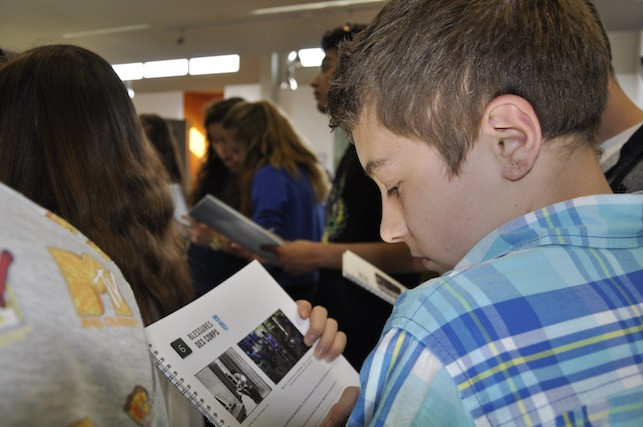It’s difficult to hear the word “landmine” and not think back 20 years to images of the late Princess Diana walking through an Angolan minefield in a ballistic helmet and flak jacket.
Despite that high profile media campaign and the resulting Ottawa Treaty creating an international ban on the use of antipersonnel landmines, the global danger of injury or death from such devices remains critical.
“In 2015, 57 countries were still contaminated by antipersonnel landmines,” explains Cyrielle Chibaeff, communications officer at Handicap International Luxembourg. “That’s why Handicap International Luxembourg is campaigning to stop the bombing of civilians and the use of explosive weapons in populated areas.”
The group’s “Are you in?” campaign integrates four pillars of anti-landmine strategy: clearing the land of explosive remnants of war; educating at risk populations; providing victim assistance; and engaging in international advocacy to end the use of explosive weapons.
Tshiala Kamunga-Badibanga is a volunteer for Handicap International Luxembourg and has actively participated in the “Are you in?” campaign by visiting schools within the Greater Region. “We explain the current situation to the children by educating them on what landmines, cluster bombs and other explosives are, and the impact they have on individual’s lives. I have been really surprised about how well educated the children are and the awareness they have of the situation.”
Tshiala Kamunga-Badibanga and Cyrielle Chibaeff at the Handicap International Luxembourg offices. Image: Lala La Photo
In Syria alone, for example, at least 90 civilians are victims of explosive weapons every day; 25% of them require amputation. “These people can be forgotten and treated like second-class citizens,” says Kamunga-Badibanga. “At Handicap International we defend the rights of these people, improve their living conditions and promote respect for their dignity and fundamental rights. Everyone deserves equality.”
The NGO receives funding from the foreign ministry, including an agreement on education in Luxembourg schools. “We also receive donations from the general public and have agreements with a few corporations,” Chibaeff adds. “Sometimes private corporations provide skills sponsorship, where their employees come and help us at larger events.”
“The largest event on the annual calendar is certainly the Pyramid of Shoes,” explains Chibaeff. “The public gather around a structure containing hundreds of single shoes symbolising the struggle to help the victims of land mines. We also provide information and deepen awareness, in addition to showing animations throughout the day.” It is held the first Saturday in October on the place d’Armes in Luxembourg City.
The outfit also organised an exhibition with the International School of Luxembourg at the end of March. The “Remnants of War” exhibition gives students the opportunity to make the connection between the historic world wars, which were fought in Europe, and what is happening in the rest of the world now, Chibaeff says. “It’s important to use history to help people identify and remember this too once happened to us.”
This article was first published in the April 2017 issue of Delano magazine. Be the first to read Delano articles on paper before they’re posted online, plus read exclusive features and interviews that only appear in the print edition, by subscribing online.

